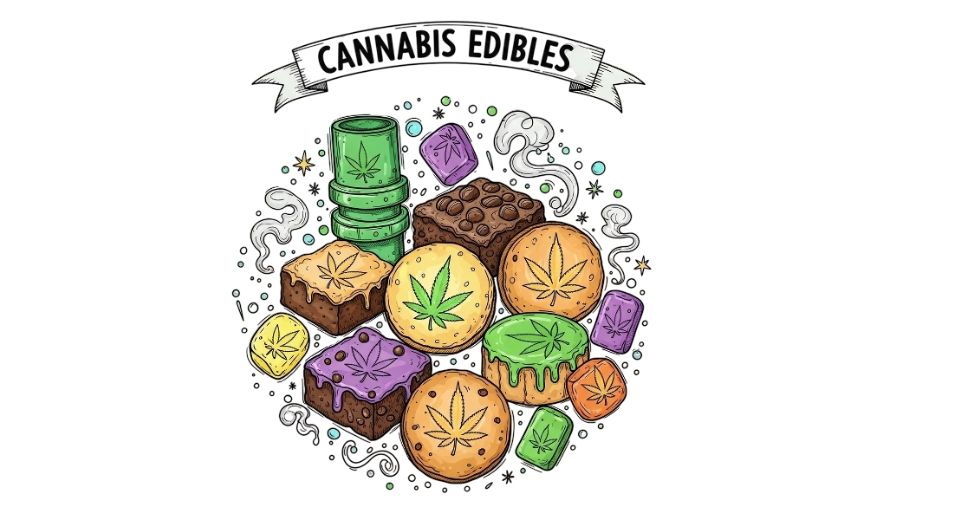
Aug 04, 2025

The new report from Metastat Insight on the Global Cannabis Edibles Market offers a powerful tale of an industry in transition, marked by a mix of cultural transformation, regulatory readjustments, and a steadily evolving consumer populace. In contrast to the classic commodity landscapes, this one is distinctively textured by social attitude, local policy heterogeneity, and changing consumer practices. The report examines not just the terrain but also the influences both subtle and dramatic that are remodeling consumption patterns and business strategies in a similar vein.
Edibles for cannabis, too often misrepresented and misunderstood, have increasingly gained a more solid place within consumer culture as a result of preference for alternative modes of intake. Where smoking previously reigned supreme, edibles are increasingly coming to the fore as a more socially acceptable and inconspicuous alternative. And with that shift, product innovation has found fertile soil. Chocolates, drinks, gummies, and baked treats are no longer exceptions; they are the focus of the branding and product lines of the largest companies putting money into this category. The magazine provides insightful commentary on how this shift is playing out in various geographies.
Perhaps the most intriguing facet covered in the Metastat Insight report is the conflict between tradition and innovation. Heritage cannabis cultures based on localized traditions are being reformed by corporate interest and international expansion strategies. While a niche of consumers is attracted to artisanal edibles created with minimal processing, a simultaneous trend towards extremely engineered products created for consistency and a longer shelf life exists. This duality manifests itself through the behaviors of producers learning to speak both languages science and heritage without losing either audience.
The role of branding here cannot be overestimated. Brands are competing with one another but also with residual stigma and levels of public acceptance. Packaging has progressed from functional to high-end, often taking cues from the wider luxury and wellness industries. This positioning strategy indicates a wish to mainstream and upscale the category, to attract health-aware and novelty-oriented consumers as much as anyone else. Metastat Insight highlights this through case studies of how market entrants have used design and narrative to stake out identity and differentiate themselves within a saturated category.
What's especially interesting is the cadence with which local regulatory climates are shaping global trends. The framework may be set nationally, but it is the regional interpretations and municipal mindsets that really define the shape of availability and acceptance. The study devotes part of its attention to examining these differences, demonstrating how another jurisdiction's policies can have a profound impact on consumer behavior, supply chain evolution, and ultimately market potential. It's a terrain less marked by conformity and more by the mosaic of responses derived from deeper cultural and political values.
Distribution strategies have also become more sophisticated. No longer satisfied with single-channel strategies, companies are testing hybrid cannabis retail models, direct-to-consumer sites, and joint ventures that combine cannabis products with other life experiences. These trends, outlined in the report, represent a deliberate shift toward integrating cannabis edibles into daily life instead of confining them to specialty status. This convergence says volumes about the direction of the industry and what consumers can expect in the future.
The role of research and development in defining the Global Cannabis Edibles Market comes alive with case studies that reflect a real hunger for scientific progress. Flavor masking, dose accuracy, and onset duration are being perfected not simply for regulatory reasons but to enhance the overall user experience. These developments reflect an intention to serve experienced users while introducing the products to newbies. The report highlights the way information-sharing and technical collaborations are driving innovation and expanding horizons previously considered too speculative.
Internationalization, while promising, is not without tensions. The International Cannabis Edibles Market is deeply affected by the quilt of international regulations and economic inequities. Businesses desiring transnational presence need to toggle product consistency against local accommodation, a tricky balancing act that frequently challenges logistical dexterity and brand consistency. The Metastat Insight report offers a portrait of market participants treading this landscape with a combination of strategic caution and aggressive experimentation that mirrors a sector learning to reconcile ambition with prudence.
Consumer education is another thread through findings. With mass influx of products and the complicated cannabinoid composition, making sure end users are informed has become a necessity. From informative packaging to accessible guidance on dosing and clear sourcing transparency; it's no longer optional. The narrative presented shows how much the market has matured to understand that its most valuable currency lies within trust. This understanding is moving the space away from being hyperbolic and towards more grounded, responsible communication.
In re-reading Metastat Insight's extensive report on the Global Cannabis Edibles Market, it becomes clear that this market is not characterized by velocity, but by purpose. Each evolution, each innovation, each regulatory shift is being contemplated within a larger framework of sustainability, cultural awareness, and consumer empowerment. The report is an insightful analysis of where the industry is at and the reflective moves it will need to keep making in order to secure its position within the larger context of contemporary consumption.
Drop us an email at:
Call us on:
+1 214 613 5758
+91 73850 57479